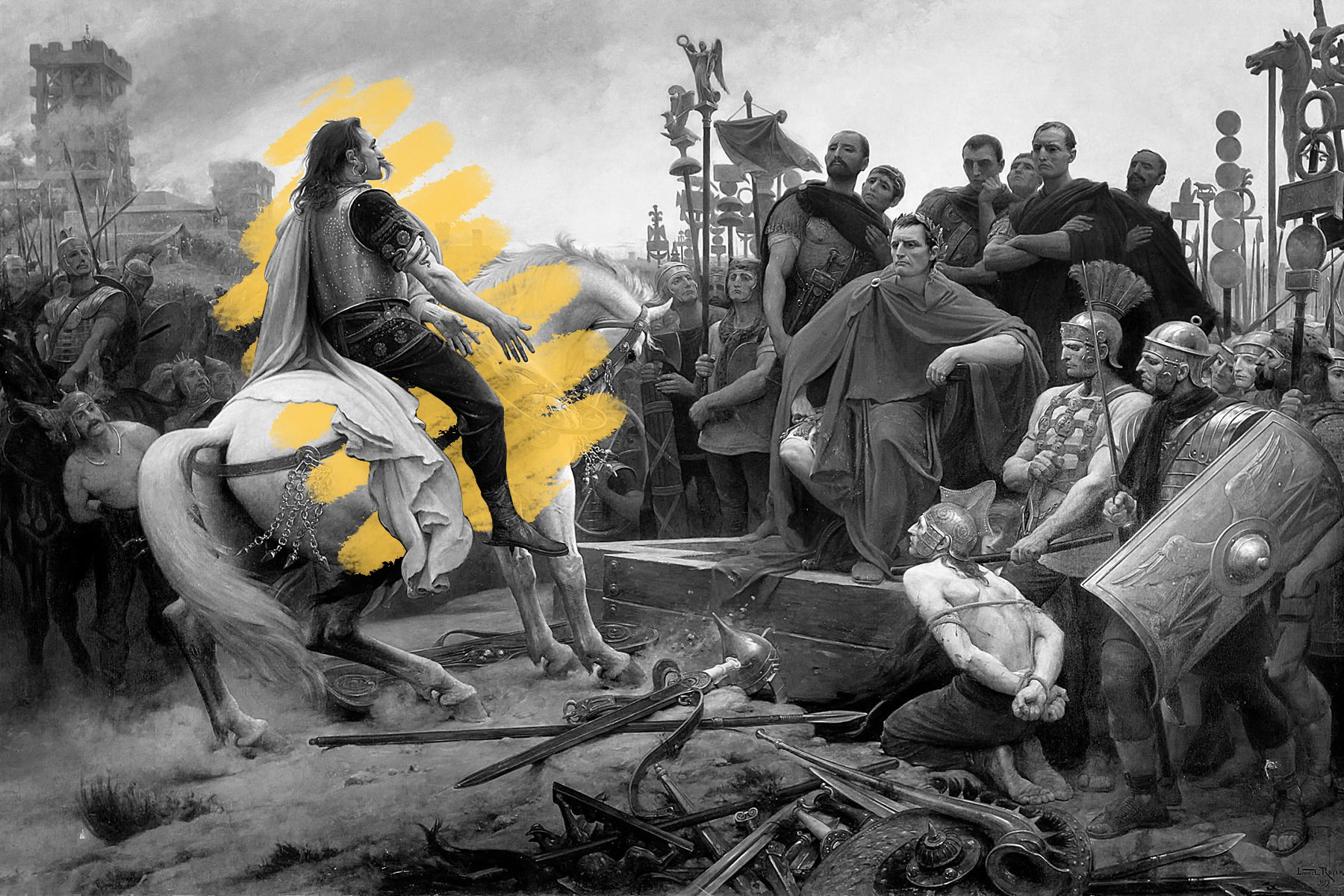What Romans used to think about pants 👖
Saturday, April 27, 2024
 |
Pants were considered uncivilized in ancient Greece and Rome. |
World History |
 |
| |
| Even academic texts are full of trouser trashing. In his treatise De aere aquis et locis (Air, Waters, and Places), written around the fourth or fifth century BCE, famed Greek physician Hippocrates belittled the Scythian people by calling them "the most impotent of men," in part "because they always wear trousers and spend most of their time on their horses." In the early second century CE, Roman historian Tacitus wrote that Roman general Aulus Caecina Alienus offended the public when he rode through Italy wearing trousers in 69 CE. And in the fifth-century-BCE text The Histories, ancient Greek historian Herodotus quoted a "wise man" giving advice to the king of Lydia about conquering Persia, which, he said, had "no luxury and no comforts." As evidence, he pointed out that they "wear trousers of leather"— a pretty high-priced item today. (For the record, the pants-wearing Persians ended up conquering Lydia in that conflict.) | |
| Anti-pants rhetoric persisted even as the fashion tide changed. The Theodosian Code, a set of Roman laws published in the fifth century CE, banned wearing trousers, punishable by exile — although many Romans had started wearing pants by that time because they were practical, warm, and much more comfortable than bare legs for riding horseback. By the medieval period, pants were a staple garment throughout Europe. | |
 | |||
| |||
Fluency Made Simple With Rosetta Stone's Proven Language-Learning Method | |||
| Thank you for supporting our sponsors! They help us keep History Facts free. |
 | |||||||||
By the Numbers | |||||||||
| |||||||||
| |||||||||
 | |||||||||
| |||||||||
The word "pants" has comedic origins. | |||||||||
| Pants weren't just a joke to the ancient Romans and Greeks. The word "pants" comes from commedia dell'arte, a form of Italian theater dating back to the 16th century, which featured a character archetype named "Pantalone." Typically, Pantalone was a scheming old villain who eventually became the butt of a joke, and was often costumed in a pair of red, tight-fitting trousers. A similar style of pants, known as "pantaloons" (an anglicized form of "Pantalone"), became popular in England during the Restoration period. For a few hundred years, "pantaloon" referred to various types of trousers, until Americans started using the word "pants" in the early 19th century. Interestingly, the word "pants" was considered vulgar by some people well into the 20th century; in the late 19th and early 20th centuries, saying someone was pants — for instance, "Fred is pants"— was an insult, meaning the person was disliked or untrustworthy. | |||||||||
 | |||
Recommended Reading | |||
 | |||
| | |||
 | |||
| | |||
| + Load more | |||
| |||
| |||||||||
| Copyright © 2024 History Facts. All rights reserved. | |||||||||
| 700 N Colorado Blvd, #513, Denver, CO 80206 | |||||||||
posted by June Lesley at 4:01 AM
![]()
![]()






0 Comments:
Post a Comment
<< Home